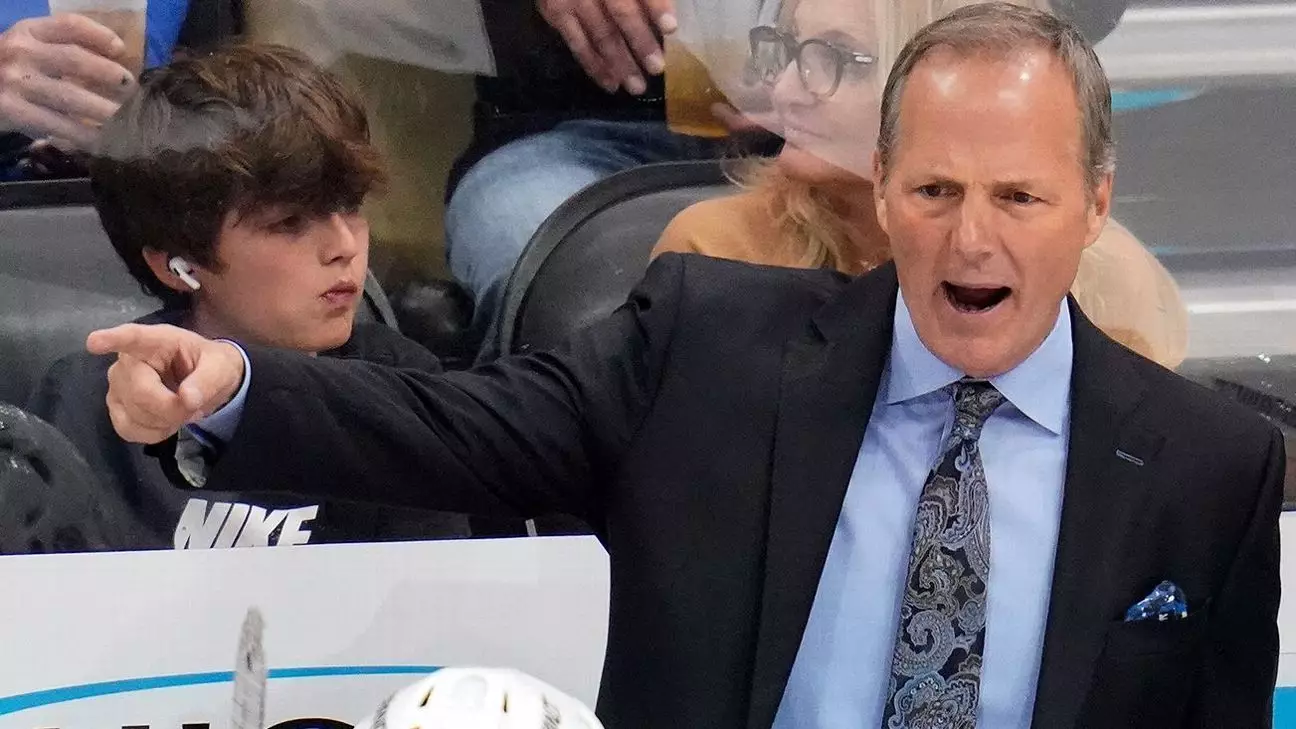The Tampa Bay Lightning have decided to continue their journey with head coach Jon Cooper, quelling recent whispers of potential changes following a disappointing exit from the playoffs. General Manager Julien BriseBois unequivocally confirmed Cooper’s return for the 2025-26 season, signifying not just a decision based on past performance, but a steadfast belief in a coach who has shaped the team’s identity over the last decade. BriseBois’s commitment to Cooper reflects a broader understanding that leadership stability is paramount, especially in professional sports where the pressure to achieve immediate success often overshadows long-term growth.
Cooper’s run as the Lightning’s bench boss has been marked by tremendous highs, including back-to-back Stanley Cup titles in 2020 and 2021. However, the recent trend of exiting the playoffs in the first round raises pertinent questions about the trajectory of the team and its strategy. Cooper’s acknowledgment of the changing tides, stating, “It was our turn for a while. Now it’s theirs,” indicates both humility and a pragmatic outlook as the team recalibrates for the future.
The Evolution of the Lightning Culture
Under Cooper’s guidance, the Tampa Bay Lightning have transformed into a perennial contender, something that few NHL franchises can claim. His tenure, which began in March 2013, has not only yielded impressive statistics—a .638 points percentage— but has also cultivated a culture of resilience and tenacity. These attributes are often overlooked when franchise trajectories are discussed, yet they play a crucial role in how a team performs under pressure.
Despite recent setbacks, it’s essential to recognize Cooper’s ability to adapt and evolve. He has consistently maximized player development and fostered an environment conducive to excellence, making his coaching style a study in balancing rigorous tactical demands with player welfare—a skill that is both rare and invaluable at this level.
Future Prospects and External Speculation
While Cooper’s place with the Lightning seems secure for now, chatter regarding potential new opportunities, particularly with outside organizations like Utah’s hockey initiatives, raises intriguing angles for analysis. The connection he shares with influential figures such as Ryan Smith cultivates an image of a coach who is not only respected in the realm of hockey but also viewed as a valuable asset across sports. Such linkages highlight the interconnectedness of sports — Cooper’s presence on platforms like Turner networks as an analyst illustrates his multifaceted contributions to the game both on and off the ice.
Still, Cooper’s remarks about his unwavering commitment to Tampa elucidate a sense of belonging that transcends career logistics. “It’s hard to see myself anywhere else,” he stated. This emotional tie to the organization speaks volumes about his character and leadership philosophy. While the allure of new challenges may tempt him, the notion of loyalty to a franchise that has defined his professional identity cannot be understated.
Challenges in Talent Acquisition
Additionally, the Lightning’s current roster decisions reflect broader trends in player management and development within the NHL. The hesitation expressed by BriseBois about signing Michigan State forward Isaac Howard highlights the meticulous nature of team-building in an era where talent is increasingly scrutinized and nurtured before entry into the professional ranks. Howard’s potential emergence as a free agent by 2026 exemplifies the thoughtful approach modern teams must adopt, balancing short-term needs with the long-term growth of individual players.
Moreover, the complexities of contract negotiations and player agency signal a shift in how teams leverage their rosters. BriseBois’s comments underscore a dedication to ensuring that every move aligns with the team’s vision, promoting a refined focus on cultivating players who fit seamlessly into their established culture.
Jon Cooper remains a central figure not only within the NHL but as a testament to the adage that resilience in leadership can produce extraordinary outcomes, despite turbulent seasons. His journey with the Lightning is a narrative of loyalty, adaptation, and an unyielding commitment to excellence that will undoubtedly influence the franchise’s future.


Leave a Reply